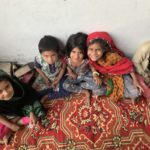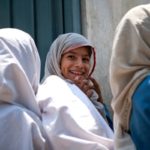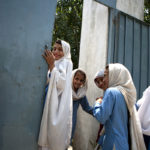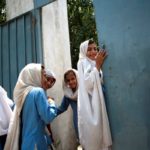A Future of Possibilities
Our Work:
Pakistan
For the last 20 years Alight has worked in Pakistan building a meaningful life for and with displaced and marginalized communities.
Our services in education, healthcare, nutrition, emergency assistance and refugee protection make a real difference in the lives of millions of people, all over the country.
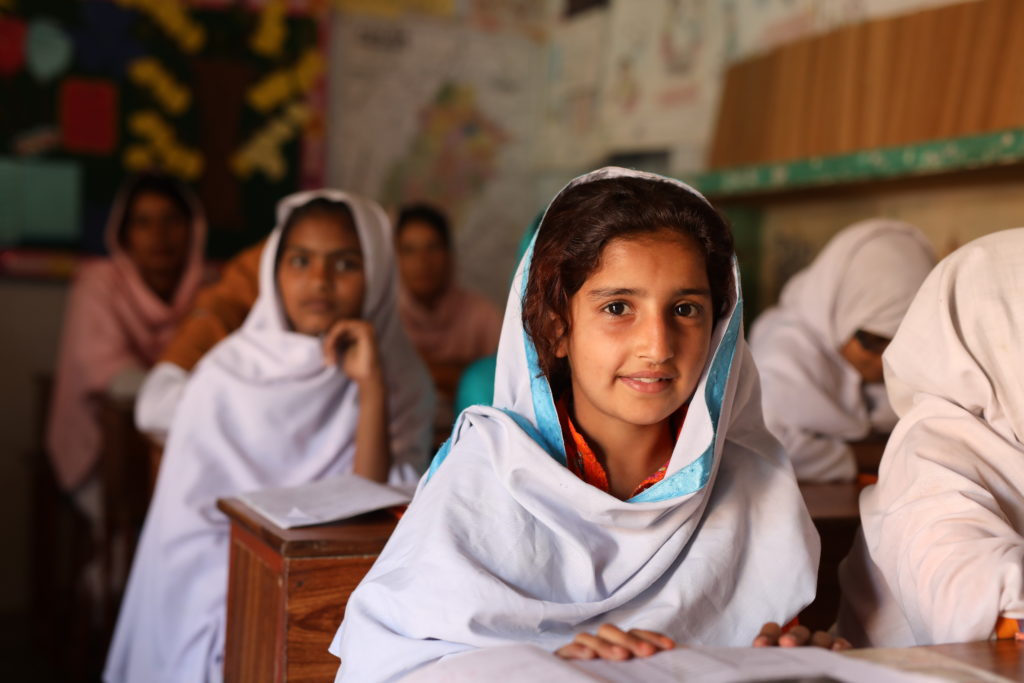
Access to education is not a question of generosity. It is a question of humanity - not a chore, but a duty. It is a matter of delivering upon the God-given rights guaranteed by our constitution - and we must as a society prioritize it at all costs to every citizen of Pakistan regardless of caste, class, gender, religion, and all other identity markers. Education will be our great equalizer as a Nation and as a community of human beings." — Dr Tariq Cheema, Alight Pakistan Country Program Director.”
— Dr Tariq Cheema, Alight Pakistan Country Program Director
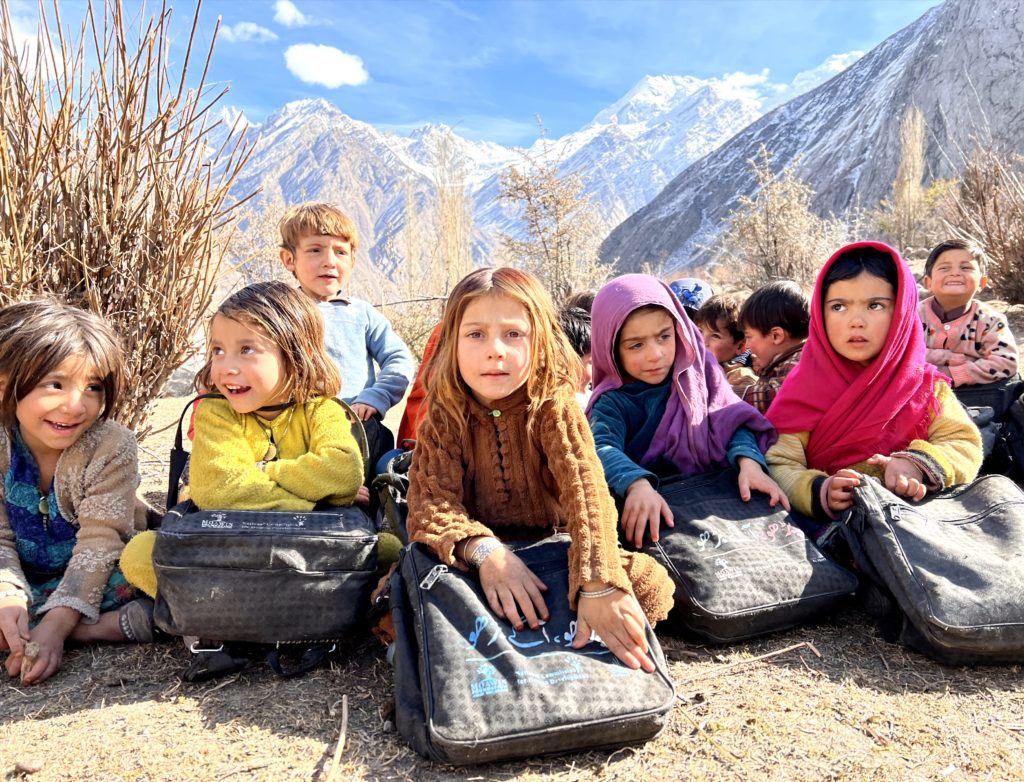
Unleashing Abundance in Pakistan
With a population of over 220 million, Pakistan is the fifth largest country in the world. It is also one of the youngest – around 60% of Pakistanis are less than 30 years old. A young population means a wealth of possibility, but only if we find solutions to problems that prevent young Pakistanis from fulfilling their potential.
Around a quarter of Pakistanis live below the poverty line, the unemployment rate is high and many children in Pakistan are forced to work in low paying jobs in order to provide for themselves and their families.
Moreover, the COVID-19 pandemic has disproportionately affected the poverty stricken citizens in Pakistan. Pakistan is home to the world’s second-largest population of out-of-school children (OOSC) with an estimated 22.8 million children aged 5-16 not attending school.
Access to education varies across the country, but generally girls and children from rural areas are worse off. Pakistan is also the third largest refugee-hosting country in the world, with 1.4 million registered Afghan refugees and many more displaced people living here unofficially. Many of them have no access to education, legal work or even public healthcare.
Towards a better future
Our vision for Pakistan is to make it a place where everyone can thrive, not just survive. We want everyone to get a chance to have a fulfilling, meaningful life. We believe that social sustainability (encompassing health and social equity, human rights, social responsibility and justice, and community resilience) is vital for the development and well-being of all citizens.
We work where we are most needed, delivering emergency services and providing long-term support that allows communities to recover and rebuild. We assist vulnerable and displaced people through health and nutrition interventions, education, skill development and sustainable livelihood services.
We help communities build resilience and become self-sustainable. We take the holistic approach to care: not limited to emergency relief, but extending a long-term support for sustainable change for the better.
Education is the most effective tool for addressing poverty, building peace, and fighting oppression and our team in Pakistan is focusing on finding sustainable solutions to provide access to education to every child. We understand that when it comes to education, “one size fits all” solutions won’t do. That’s why we work with communities to co-design solutions that will address their specific needs.
As a human-centred organization we strive for equity – recognizing that everyone faces different challenges and has different requirements. Our educational solutions are culturally sensitive and gender-responsive by design – and that is what makes them so effective.
Million Kids to School
We have a reason to celebrate – our campaign – ‘Educating One Million Out of School Children in Pakistan’ – has been hugely successful. It resulted in enrolment of 1,101,549 out of school children, including 505,091 girls. The campaign – a part of global Educate a Child (EAC) program, was Pakistan’s largest ever intervention for out-of-school children of primary school age. Many people and many organizations contributed to the campaign’s success. We ‘Found Others’ – teaming up with key partners from government, business, and the Third Sector, and working with communities to co-design most effective solutions.
When it comes to effective – and sustainable – solutions, community involvement and adaptability are vital. We have established 233 non-formal/community schools offering a flexible alternative option to those unable to join mainstream schools, and we upgraded 4266 existing public schools, increasing their capacity to accept more students.
We developed and distributed workbooks, stationary and other school essentials. We devised accelerated curriculum to help students catch up on their lost years of education. We made sure that our teachers have access to in person and online training – through our Virtual Teachers Training Academy which delivers a distance learning pedagogical course.
Muallim Learning Hub
Muallim Learning Hub is a knowledge platform for students and educators, where they can find resources, lessons, links to game-based education and teachers’ training. Our content enriches classroom learning, helps students deepen their knowledge, practice newly gained skills, and continue learning when going to school is impossible. As part of the Muallim project we have introduced Muallim Radio School, Virtual Teachers Training Academy, edugaming zone and a range of workbooks available online.
The Virtual Teachers’ Training Academy
The Virtual Teachers’ Training Academy established by Alight Pakistan in collaboration with Allama Iqbal Open University (AIOU) and Japan International Cooperation Agency (JICA) is Pakistan’s only portal dedicated to quality teacher training provision for non-formal school teachers.
As all face-to-face trainings were suspended during the Covid19 pandemic, the NFS teachers did not have access to professional training. The VTTA gave them the opportunity to upgrade their skills and gain subject content knowledge through asynchronous e-learning. Upon the completion of the course the teachers receive certificates endorsed by the AIOU.
In collaboration with KarMuqabla we help students test their knowledge against hundreds of thousands of their peers through innovative edu-gaming software. They play the game, and the software tells them how much they know, how much is left and how well they match up to their peers. To play the games a child does not require expensive computers or broadband connection – any old smartphone with an ordinary SIM will do. Low data usage ensures maximum gameplay for anyone and everyone.
For many students in Pakistan switching to online learning during the pandemic was not an option – they didn’t have access to devices or the internet. In the remote regions of the mountainous Gilgit Baltistan province many households rely on the radio as the only source of news – and it was radio that proved to be the answer. Muallim Radio School is a low-tech, high-impact solution that proved effective. So much so, that Pakistan’s Federal Ministry of Education & Training and the Ministry of Information & Broadcasting have adapted it as the “Nationwide School Initiative.”
Gamzaan – Moving Forward
To be Gamzaan is to keep on walking, progressing, moving towards a certain goal. For us that goal is to provide young people of the Karakorum region with access to education and vocational training, leveraging the transformative power of education to empower individuals and build more resilient communities.
Through the Gaamzan project, our team in Pakistan working in partnership with Central Asia Institute, strives to provide quality education and skill-development opportunities to thousands of children and young adults in Gilgit Baltistan. Working on the ground in remote, often difficult-to reach villages of the Karakorum and Himalaya region, we collaborate with local communities to change their lives for the better and promote sustainable development. We listen to those we serve and based on the need we respond by building a school, providing supplies, training teachers, awarding scholarships, and sponsoring livelihoods training.
Over the course of 15 months, starting in July 2020, we have reached a total of 7,656 children and 116 adolescents in 10 different districts of Gilgit-Baltistan. And we keep on moving.
Reaching Across the Border – Doing the Doable for Afghanistan
The people of Afghanistan suffered through decades of war. Now recent political changes, the economic crisis, the COVID pandemic and the impact of climate change have made their situation critical. The most pressing problems are food insecurity, displacement during harsh winter weather, access to healthcare and education. It is our responsibility as humans, regardless of nationality, and despite political challenges, to help Afghan people when they are most in need.
Alight Pakistan is determined to make sure that Afghan people are not hungry and have a roof over their heads. We need to provide safe drinking water. We must arrange basic healthcare. We won’t do it alone – we seek collaboration with people on the ground and humanitarian organizations from all around the
world who care for Afghan people as we do. We will go where no one else is willing to go to help those most in need.
The solutions that worked in Pakistan can work in Afghanistan, too. For example, “Million Kids to School” campaign taught us a lot about the complex barriers that restrict children, and girls specifically from getting education. Alight’s innovative Muallim Radio Broadcast, that ensured continuous education during the pandemic, is just one of the solutions that can be adapted for Afghan children. And we can do it now.
Pakistan: Related Information
Buy One, Give One – Pencils
—
The Pencils For Getting Back To School
Alight has designed this inspirational set of 7 pencils. For each set we sell, a pencil set will be given to a refugee student in Pakistan, Uganda, or any place Alight is helping young people learn. Read MoreKeeping the Wheels Turning
—
A Book Bus, Sports Gear, and School Supplies for Kids in Pakistan
For our Pakistan team, education has been the top priority for years. With one of the highest populations of out-of-school children in the world, Pakistan’s young people need more avenues to see and unleash their potential. Read MoreHumanitarians First: Alight Pakistan Responds to COVID-19
—
Stepping up in a time of crisis...
For years now, our work in Pakistan has been all about getting kids back in the classroom. There are millions of out-of-school kids in the country—children who have either dropped out of school, live in remote areas, or who can’t afford school fees. So far, we’ve enrolled over 800,000 previously out-of-school kids, creating new opportunities for families to better access and afford education that works for them. Read MoreGetting Kids In The Classroom
—
Alight Enrolls 637,000 Children in School in Pakistan
In 2019, Alight and its partners in Pakistan enrolled 637,000 children – previously not in school – into Pakistan’s formal education system. And we're on track to put one million Pakistani children into school before the end of 2020. (more…)Educating One Million Kids in Pakistan
—

